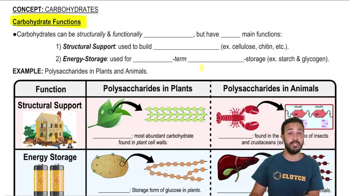Which of the following vitamins is mismatched with the disease that results from its underconsumption?
a. Vitamin B6—Beriberi
b. Vitamin C—Scurvy
c. Vitamin A—Vision loss
d. Vitamin D—Rickets
 Verified step by step guidance
Verified step by step guidance Verified video answer for a similar problem:
Verified video answer for a similar problem:

